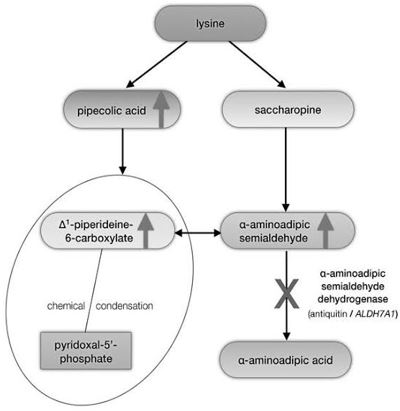AN ATYPICAL PRESENTATION OF PYRIDOXINE DEPENDENT EPEILEPSY
Abstract
Pyridoxine dependent epilepsy (PDE) is a rare autosomal recessive disorder and is considered a protypical form of metabolic epilepsy. It is characterised by recurrent seizures in the prenatal, neonatal and/or postnatal periods that are resistant to conventional antiepileptic drugs, but responsive to pharmacological doses of pyridoxine. The point prevalence of PDE, may vary from 1:20,000 to 1:600,000, based on the degree of systemic ascertainment via therapeutic trial with pyridoxine. Often, pyridoxine dependent epilepsy can cause diagnostic dilemmas, due to lack of awareness of this clinical condition, wide spectrum of clinical manifestations and phenotype genotype variances. Accumulation of the toxic metabolites will lead to developmental delay and mental retardation on long term, which can be prevented by pyridoxine supplementation and restriction of lysine from diet. Hence, early detection of this condition is very important. Novel instrumental screening methods need to be developed for early detection of this condition to achieve better seizure control and prevent long term brain damage in this group of patients. Here, we report a case of a newborn who presented with atypical features of neonatal epileptic encephalopathy along with abdominal distension and a mixed seizure pattern who was diagnosed as pyridoxine dependent epilepsy on whole exome sequencing.
Downloads
References
2.Perez B , Gutierrez - Solana LG , Verdu A, et al. Clinical, biochemical and metabolic studies in pyridoxine dependent epilepsy. Antisense therapy as possible new therapeutic option. Epilepsia. 2013; 54: 239-48.
3. Hunt AD, Stokes J, Mc Crory ww, Stroud HH. Pyridoxine dependency: report of a case of intractable convulsions in an infant controlled by pyridoxine. Pediatrics. 1954; 13:140-5.
4. Ebinger M, Schultze C, Konig S. Demographics and diagnosis of pyridoxine - dependent seizures. J Pediatr. 1999; 134:795-6
5. Been JV, Bok. LA, Andriessen P, et al. Epidemiology of pyridoxine dependent seizures in the Netherlands. Arch Dis child. 2025; 90: 1293-6.
6. Baxter P. Epidemiology of pyridoxine dependent and pyridoxine responsive seizures in the UK. Arch Dis child . 1998; 81: 431-3.
7. Mills PB, Struys E, Jakobs C, et al. Mutations in antiquitin in individuals with pyridoxine - dependent seizures. Nat Med. 2006; 12:307-9.
8.Stockler S, Plecko B, Gospe Jr SM , et al. Pyridoxine dependent epilepsy and antiquitin deficiency: clinical and molecular characteristics and recommendations for diagnosis, treatment and follow-up. Mol Genet Metab. 2011; 104:48-60. Mini review on Pyridoxine Dependent Epilepsy that explains the clinical presentation, pathophysiology, mutational spectrum, diagnostic markers, along with methods for screening and diagnosis of PDE and the treatment options with follow-up strategy.
9. Baxter P. Epidemiology of pyridoxine dependent and pyridoxine responsive seizures in the UK. Arch Dis Child. 1999;81:431-3
10. Basura GJ, Hagland SP, Wiltse AM , et al. Clinical features and the management of pyridoxine - dependent and pyridoxine - responsive seizures: review of 63 North American cases submitted to a patient registry. Eur J Pediatr. 2009; 168:697-704
11. Baxter P, Griffiths P, KellyT, et al. Pyridoxine - dependent seizures: demographic, clinical, MRI and psychometric features, and effect of dose on intelligence quotient. Dev Med Child Neurol. 1996; 38:998-1006.
12. Kluger G, Blank R, Paul K, et al. Pyridoxine - dependent epilepsy: normal outcome in a patient with late diagnosis after prolonged status epilepticus causing cortical blindness. Neuropediatrics. 2008; 39:276-9.
13. Ohtsuka Y, Hattori J, Ishida T, et al. Long-term follow-up of an individual with vitamin B6-dependent seizures. Dev Med Child Neurol. 1999; 41:203-6.
14. McLachlan RS, Brown WF. Pyridoxine dependent epilepsy with iatrogenic sensory neuronopathy. Can J Neurol Sci. 1995; 22:50-1
15. Rankin PM, Harrison S, Chong WK, et al. Pyridoxine - dependent seizures: a family phenotype that leads to severe cognitive deficits, regardless of treatment regime. Dev Med Child Neurol. 2007; 49:300-5.
16. Bok LA, Halbertsma FJ, Houterman S. Long- term outcome in pyridoxine - dependent epilepsy.Dev Med Child Neurol.2021;54:849-54. Retrospective Study of PDE cohort of Dutch patients, evaluating the long -term outcome and correlations between patients characteristics and follow -up data

Copyright (c) 2024 Author (s). Published by Siddharth Health Research and Social Welfare Society

This work is licensed under a Creative Commons Attribution 4.0 International License.


 OAI - Open Archives Initiative
OAI - Open Archives Initiative


